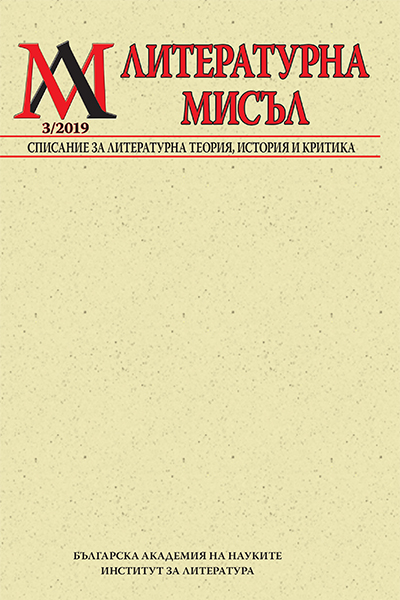Да пишеш на два езика между две култури
Writing in two languages, between two cultures
Author(s): Evelina Lambreva JekerSubject(s): Foreign languages learning, Studies of Literature, Translation Studies
Published by: Институт за литература - БАН
Keywords: language; culture; Bulgarian; German
Summary/Abstract: I have grown up bilingual since my earliest childhood: with the Bulgarian and German languages. Bulgarian is my mother language, German - my father's language. There is no moment I can remember in my life when I could only speak Bulgarian.I started to write poetry in Bulgarian as a student at the Gymnasium. Translating my poems into German was never a topic, as long as I lived in Bulgaria. When I returned to writing after a 15-year break, I had been living in Switzerland for 10 years. And since my husband, friends, and colleagues were very curious about what I was writing and how my poems sounded, I began to translate them into German. There are no poems of mine, that I first wrote in German. To write poetry in a language, other than my mother language, is still unimaginable because poetry means to me the deepest emotional confrontation with the world, which is only possible in this language, in which one has learned to recognize and name his feelings.Since I started writing seriously, I have been working with a professional publishing editor in both Bulgarian and German. That I not only write in two languages but that this also happens between two cultures, I became really aware in the collaboration with various publishing editors, when writing prose. The cultural translation (that means to me familiarizing with the respective unfamiliar attitudes, behavior, thinking, and mentalities between the German-speaking and the Bulgarian culture) of my texts, proved to me to be a much bigger challenge than the purely linguistic one. Because every language unconsciously carries with it a great deal of cultural content, which is shaped by historical, socio-political and people-specific experiences, and also by a country-specific understanding.The texts, which occur in my head first in Bulgarian, and which I write for a Bulgarian target audience, mostly tell about the life of Westerners in the German-speaking world. Conversely, the texts that I write primarily in German mostly tell the German-speaking reader about Bulgarian life in the past and in the present. And since I always translate my texts myself, it is often the publisher's editor in the respective language, who draws my attention to culturally specific phenomena, that need better lighting in the text. Because in my bicultural identity, the boundaries between the two cultures in which I move, are already blurred.So I can compare writing in two languages and between two cultures with building bridges. Bridges, which serve as a meeting place, bridges, that connect and make strangers familiar, bridges that facilitate and promote cultural dialogue.
Journal: Литературна мисъл
- Issue Year: 62/2019
- Issue No: 3
- Page Range: 72-74
- Page Count: 4
- Language: Bulgarian
- Content File-PDF

